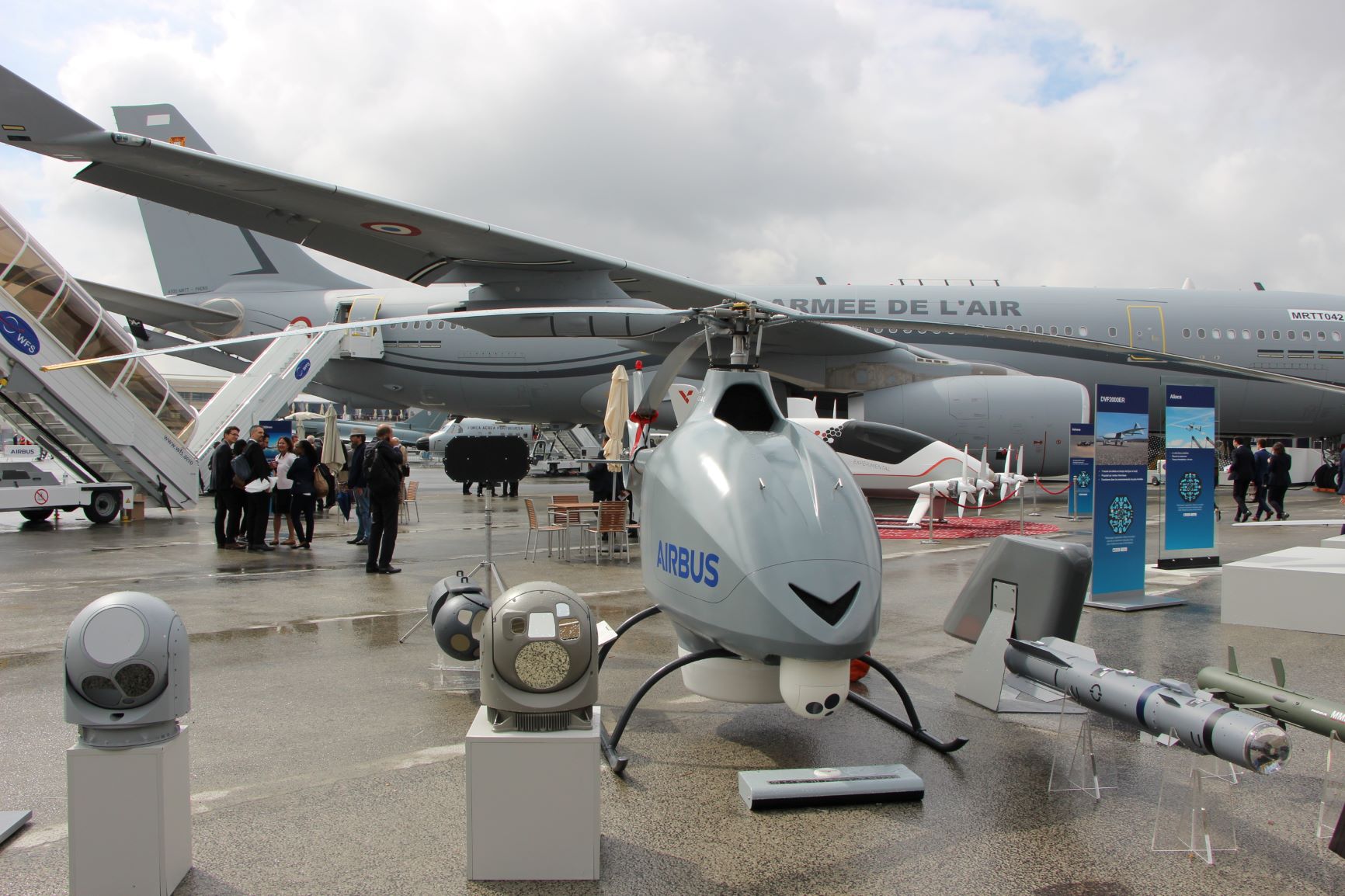French arms sales rise fastest in 2016-2020: SIPRI global arms trade report

As per the French government report on arms exports through the year 2019, the biggest client for France was Qatar (MIG photos)
The coronavirus pandemic that has brought the global economy to its knees does not seem to have impacted the defence industries and global arms trade says a report by Stockholm-based research body Stockholm International Peace Research Institute (SIPRI) that tracks the arms industry.
Even though the pandemic had an unprecedented impact on the budgets of the governments, defence spending by most nations continued to rise or at least remain stable. For instance, China raised its spending by 6.6 pc, while Japan announced a ninth consecutive year of higher defence budget, with spend of USD 51.6 billion in 2021 and in France lawmakers and the defence industry expect higher support from the government to counter the effects of the pandemic, despite a much higher fiscal deficit. Only a handful of nations diverted spending to their social sector programmes to reduce the impact of the pandemic and revival of the economy. For example, Russia plans to reduce military spending by 5 pc between 2021 and 2023 due to the impact of the pandemic on economic growth, says SIPRI.
Over a 5-year period, from 2016 to 2020, however, the situation does change dramatically as there has been a major shuffle in market shares of various countries in the global arms trade.
SIPRI says that there was a substantial rise in sales by three of the top five arms exporters. The United States, France and Germany registered significant growth in arms exports and their market shares, while Russia and China declined.
The United States remained the largest arms exporter, increasing its global share of arms exports from 32 to 37 pc between 2011–15 and 2016–20. It supplied major arms to 96 countries in 2016–20, far more than any other arms exporter. France increased its exports of major arms by 44 pc and accounted for 8.2 pc of global arms exports in 2016–20. Germany increased its exports of major arms by 21 pc between 2011–15 and 2016–20 and accounted for 5.5 pc of the global total.
On the other hand, Russia, which enjoyed a 25 pc global market share in 2011-15, saw it shrink to 20 pc, after a drop of 22 pc in total sales in the five year period from 2016 to 2020. China, too, lost global marketshare which now stands at 5.2 pc. Despite the fall, China remains the fifth largest exporter in the world.

United States accounted for nearly half the Middle Eastern market as Saudi Arabia ended up buying 24 pc of all American exports (MIG photos)
Adding fuel to the fire
The troubled region of Middle East which has been in the throes of multiple wars and civil wars for over two decades continued to be a focus area of the weapons exporters with a hefty growth in total sales to the region. Saudi Arabian arms imports grew 61 pc, Egypt 136 pc and Qatar 361 pc, pushing the regional arms sales market higher by 25 pc in 2016-20 compared to the earlier period.
Indeed, United States accounted for nearly half the Middle Eastern market as Saudi Arabia ended up buying 24 pc of all American exports. For France, besides India, Egypt and Qatar were the biggest buyers and Germany’s key clients in the region were Egypt and Algeria.
United States sold weapons worth USD 12,563 billion to the Saudis in the 5-year period, while UAE signed deals for USD 2723 and Qatar bought American weapons for USD 2510 million, with Egypt accounting for sales of USD 709 million. Similarly, France sold weapons for USD 2226 million to Egypt, USD 2022 million to Qatar, USD 639 million to Saudi Arabia and USD 438 to the UAE. Germany sold weapons worth USD 732 million to Algeria and USD 676 million to Egypt. United Kingdom’s biggest client in the world was again Saudi Arabia that purchased USD 1489 million worth of weapons, almost a third of all weapons sales made by the UK.
The sale of weapons Saudi Arabia and the UAE which have been engaged in a bloody war with Houthi rebels in Yemen for the past four years has been widely criticised by several human rights and humanitarian aid bodies globally, accusing the weapon sellers of fuelling the war that has become the worst humanitarian crisis in the world, having already caused over 250,000 deaths.
SIPRI says Saudi Arabia was the world’s largest arms importer from 2015 to 2019 which were the first five years of the Yemen war. Despite the wide-ranging concerns in the US and the United Kingdom about Saudi Arabia’s military intervention in Yemen, both Washington and London continued to export arms to Saudi Arabia from 2015 to 2019. A total of 73 pc of Saudi Arabia’s arms imports came from the US and 13 pc from the UK.
“Barack Obama could have stopped the war at its start in 2015 by cutting off military, diplomatic, and intelligence support for the Saudi-led coalition that imposed a blockade on Yemen and began deadly air strikes on civilian targets. The administration’s regional military commander, now secretary of defense Lloyd Austin, reportedly advised against supporting the Saudi campaign and predicted it would be a failure. The Senate confirmation process for Austin gave insufficient attention to the issue. It would be useful to know more about the debate inside the Obama administration during the start of the war. Who were the proponents of backing Riyadh and Abu Dhabi? Who were the doubters?’’ writes Bruce Riedel, senior fellow and directors of Brookings Intelligence Project. He calls for an immediate halt of sales of weapons to Saudi Arabia, a move that has already been initiated by Italy that cut off all military sales to Saudi Arabia and the United Arab Emirates, the 10th and 11th-largest buyers of Italian arms. Italy also blocked the transfer of more than 12,000 missiles to the Saudis.
The United States President Joe Biden has already put a temporary halt on arms sales to the two countries as well. It includes the USD 35 billion F35 fighter jet deal with the UAE and it removed the tag of foreign terrorist organisation from the Houthis. The US has also ended support for “offensive operations by Saudi Arabia”. All these moves are positive and need to be made permanent by the US and followed by other weapons sellers, who unfortunately have maintained a stoic silence even as the war in Yemen continues.
Who is France supplying arms to?
Last year, the French government published its latest report on arms exports through the year 2019. The biggest client for France was estranged member of Gulf Cooperation Council, Qatar. The next two on the list were Saudi Arabia and Egypt, accounting for EUR 1.4 billion and EUR 1 billion in arms, respectively. These sales have upset international human rights organisations that accuse France of practicing blatant hypocrisy. “Providing arms to countries repeatedly implicated in serious abuses, including possible war crimes, contradicts its goal to be seen as a global leader for human rights values. These figures illustrate the profound contradictions of French diplomacy. On the one hand, the government rightly promotes respect for international humanitarian law and makes the protection of civilians in conflicts one of its top priorities; on the other, it has continued to supply arms to countries involved in creation and continuation of the worst humanitarian crisis in the world,” says a report by Human Rights Watch.
The NGO says it has documented serious abuses and war crimes committed by the Egyptian army during operations in North Sinai. London-based Amnesty International also has reported on the use of French equipment in the bloody repression of demonstrations by Egyptian security forces in recent years. “Under President Abdel Fattah al-Sisi, Egypt has been enduring the worst crackdown on basic and fundamental rights in decades. Not only is it contrary to France’s international obligations to persist in selling arms to these countries despite the clear risk they may be used to commit serious violations and war crimes, the sales give an effective green light to abusers. They undermine France’s credibility in its role promoting international law and universal human rights values at a time when they face serious attacks around the world,” says Human Rights Watch.
But unmindful of the hypocrisy in their policies and the hundreds of thousands of lives that are lost due to their policy of selling any weapon to practically any buyer, leaders of the world’s oldest democracies that have also been projecting themselves as the bulwark of democracy around the world continue to push their military sales, rejoicing at every big deal that is concluded thanks to their sales pitch. But at the next moment, the same leaders take the pulpit to proclaim democratic values and human rights.









